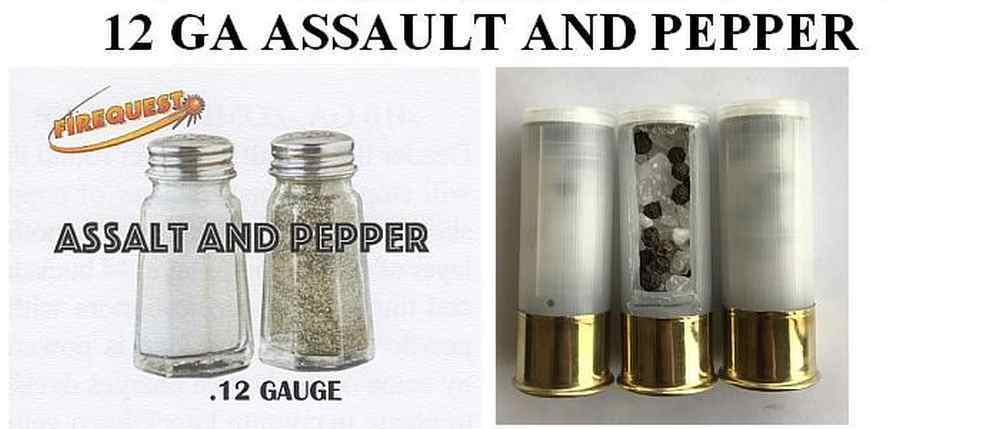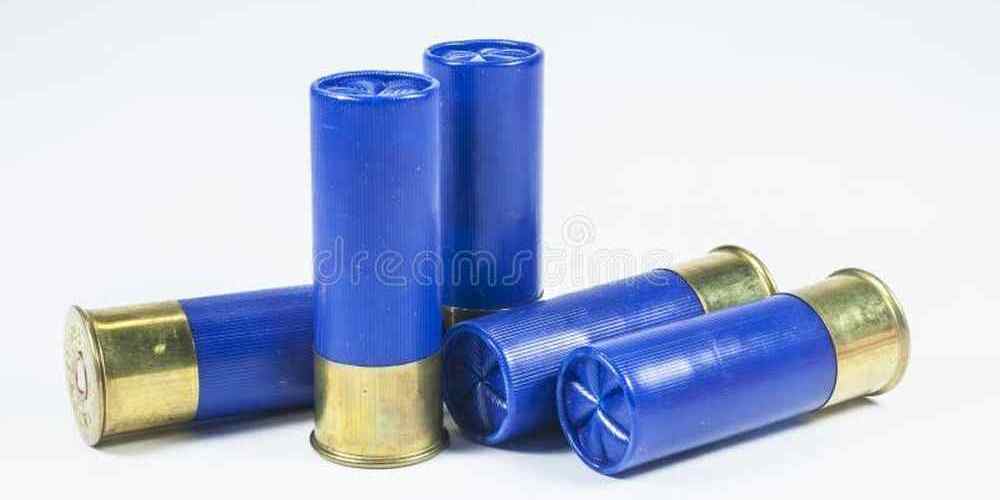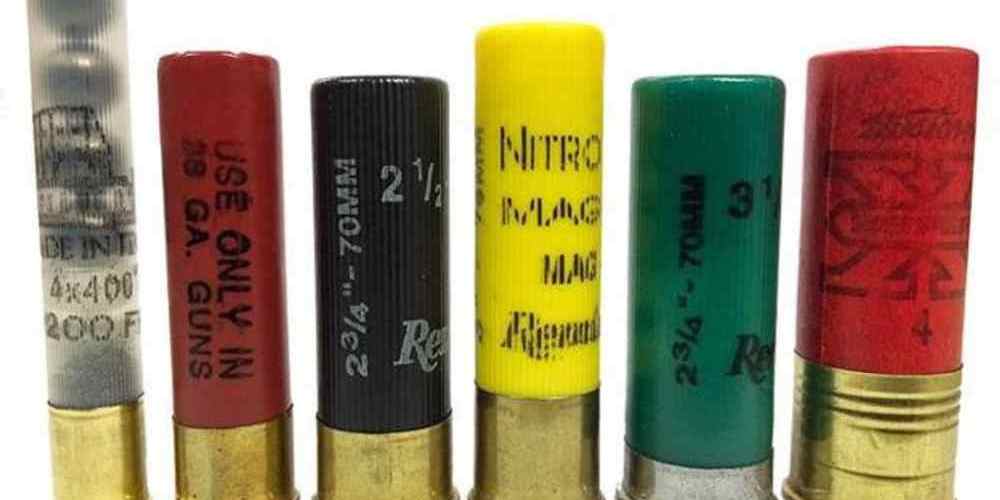“Shotgun ammunition for personal defense: Expert opinions to help you make the right choice.”
Pros and Cons of Using Shotgun Ammunition for Personal Defense
Shotguns have long been a popular choice for personal defense due to their stopping power and versatility. However, there is an ongoing debate among experts about the best type of ammunition to use in a shotgun for personal defense. Some argue that traditional buckshot is the most effective, while others believe that slugs or specialized defensive rounds are superior. In this article, we will explore the pros and cons of using shotgun ammunition for personal defense, and hear from experts on both sides of the debate.
One of the main advantages of using a shotgun for personal defense is its ability to deliver a devastating blow to an attacker. Buckshot, which consists of multiple lead pellets, is particularly effective at close range and can quickly incapacitate an assailant. This makes it a popular choice among many gun owners who prioritize stopping power above all else. Additionally, shotguns are relatively easy to use and require minimal training compared to other firearms, making them a good option for those who may not have extensive experience with guns.
On the other hand, some experts argue that buckshot may not be the best choice for personal defense in all situations. While it is effective at close range, buckshot loses its effectiveness at longer distances and may not penetrate barriers such as walls or doors as well as other types of ammunition. This could potentially put innocent bystanders at risk in a home defense scenario. In these cases, slugs or specialized defensive rounds may be a better option, as they offer more precision and penetration than buckshot.
Slugs are solid projectiles that are designed to travel in a straight line, making them more accurate at longer distances than buckshot. They also have better penetration capabilities, which can be important in situations where an attacker is behind cover. Specialized defensive rounds, such as those loaded with copper or steel pellets, are designed to expand upon impact, increasing their stopping power while minimizing the risk of overpenetration. These rounds are often recommended for home defense scenarios where there is a risk of hitting unintended targets.
Despite the advantages of slugs and specialized defensive rounds, some experts still prefer buckshot for personal defense. They argue that the spread of pellets from a shotgun blast increases the likelihood of hitting an attacker in a high-stress situation, where accuracy may be compromised. Additionally, buckshot is more forgiving of shot placement than slugs, making it a better choice for those who may not have the time or training to aim precisely in a self-defense scenario.
In conclusion, the debate on the best type of shotgun ammunition for personal defense is ongoing, with experts on both sides presenting compelling arguments. Ultimately, the best choice will depend on the individual’s specific needs and circumstances. It is important for gun owners to carefully consider their options and seek out training and advice from knowledgeable sources before making a decision. Whether you choose buckshot, slugs, or specialized defensive rounds, the most important thing is to be prepared and confident in your ability to defend yourself and your loved ones in a dangerous situation.
Expert Opinions on the Effectiveness of Shotgun Ammunition in Self-Defense Situations
Shotguns have long been a popular choice for personal defense due to their power and versatility. However, there is an ongoing debate among experts about the effectiveness of shotgun ammunition in self-defense situations. Some argue that shotguns are the ultimate home defense weapon, while others believe that they are not as practical as other firearms. To shed some light on this topic, we reached out to a few experts in the field to get their opinions on the matter.
One of the main arguments in favor of using shotguns for personal defense is their stopping power. Shotguns are capable of delivering a devastating blow to an attacker, which can quickly incapacitate them and stop the threat. This is especially true when using buckshot or slugs, which are large projectiles that can cause significant damage upon impact. According to firearms instructor John Smith, “Shotguns are great for home defense because they have the ability to stop an intruder in their tracks with just one shot.”

On the other hand, some experts argue that shotguns have limited capacity and are slower to reload compared to other firearms, such as handguns or semi-automatic rifles. This can be a significant drawback in a self-defense situation where multiple shots may be required to neutralize a threat. Firearms expert Sarah Johnson explains, “While shotguns are powerful, they are not as practical for self-defense as handguns or rifles due to their limited capacity and slower rate of fire.”
Another point of contention in the debate on shotgun ammunition for personal defense is overpenetration. Some experts argue that shotguns are less likely to overpenetrate walls and endanger bystanders compared to handguns or rifles. This is because shotgun pellets disperse upon impact, reducing the risk of collateral damage. However, others believe that the spread of shotgun pellets can also make it more difficult to hit a target accurately, especially at longer distances.
In terms of ammunition choices, there are several options available for shotgun owners. Buckshot is a popular choice for self-defense due to its ability to deliver multiple projectiles with each shot, increasing the chances of hitting a target. Slugs, on the other hand, are large, single projectiles that offer greater accuracy and stopping power at longer ranges. Some experts recommend using a combination of both buckshot and slugs for self-defense to cover a wider range of scenarios.
Ultimately, the effectiveness of shotgun ammunition in self-defense situations depends on a variety of factors, including the shooter’s skill level, the environment in which the confrontation takes place, and the specific ammunition used. As firearms instructor John Smith points out, “The best self-defense weapon is the one you are most comfortable and proficient with. Whether it’s a shotgun, handgun, or rifle, it’s important to practice regularly and be prepared to defend yourself if the need arises.”
In conclusion, the debate on shotgun ammunition for personal defense is a complex and multifaceted issue. While shotguns offer significant stopping power and can be effective in certain situations, they also have limitations that must be taken into consideration. Ultimately, the choice of firearm and ammunition for self-defense is a personal decision that should be based on individual needs and preferences. As always, it is important to seek out training and guidance from qualified experts to ensure that you are prepared to defend yourself effectively in any situation.
Comparing Different Types of Shotgun Ammunition for Personal Defense
Shotguns have long been a popular choice for personal defense due to their stopping power and versatility. However, when it comes to choosing the right ammunition for personal defense, there is often a debate among experts about which type is best. In this article, we will explore the different types of shotgun ammunition commonly used for personal defense and hear from experts on their opinions.
One of the most popular types of shotgun ammunition for personal defense is buckshot. Buckshot consists of multiple large pellets that spread out upon firing, increasing the chances of hitting a target. This makes buckshot an effective choice for close-range encounters where stopping power is crucial. However, some experts argue that buckshot may not penetrate deeply enough to stop a determined attacker, especially if they are wearing heavy clothing or body armor.
Another common type of shotgun ammunition for personal defense is birdshot. Birdshot consists of numerous small pellets that spread out even more than buckshot upon firing. While birdshot is less likely to over-penetrate and cause collateral damage, it is also less effective at stopping an attacker, particularly at longer ranges. Some experts recommend birdshot for use in situations where over-penetration is a concern, such as in urban environments.
Slugs are another option for personal defense with a shotgun. Slugs are solid projectiles that offer superior penetration and accuracy compared to buckshot or birdshot. Slugs are capable of stopping an attacker with a single well-placed shot, making them a popular choice among some experts for personal defense. However, slugs also have a higher risk of over-penetration, which could pose a danger to bystanders.
When it comes to choosing the right shotgun ammunition for personal defense, there is no one-size-fits-all answer. Each type of ammunition has its own advantages and disadvantages, and the best choice will depend on the specific circumstances of the situation. Some experts recommend using a combination of different types of ammunition, such as starting with birdshot for warning shots and then switching to buckshot or slugs if necessary.
Ultimately, the most important factor in choosing shotgun ammunition for personal defense is training and practice. Experts agree that proficiency with your chosen ammunition is crucial for effectively defending yourself in a high-stress situation. Regular practice at the range and training with different types of ammunition can help you become more comfortable and confident in your abilities.
In conclusion, the debate on shotgun ammunition for personal defense is ongoing, with experts offering differing opinions on the best choice. Buckshot, birdshot, and slugs each have their own strengths and weaknesses, and the best choice will depend on the specific circumstances of the situation. Ultimately, the most important factor is training and practice with your chosen ammunition to ensure that you are prepared to defend yourself effectively in a self-defense situation.
Legal Considerations of Using Shotgun Ammunition for Self-Defense
Shotguns have long been a popular choice for personal defense due to their stopping power and versatility. However, the debate over which type of ammunition is best for self-defense purposes continues to rage on. In particular, the use of shotgun ammunition for personal defense has sparked a heated discussion among experts in the field.
One of the main legal considerations when it comes to using shotgun ammunition for self-defense is the issue of overpenetration. Overpenetration occurs when a bullet or projectile passes through its intended target and continues on to hit unintended targets. This can be a serious concern in a self-defense situation, as the last thing you want is for your shot to harm an innocent bystander.
Experts recommend using shotgun ammunition that is specifically designed for self-defense purposes, such as buckshot or slugs. These types of ammunition are less likely to overpenetrate than traditional birdshot, which is designed for hunting small game. Buckshot and slugs are also more effective at stopping an attacker, as they deliver a larger amount of energy to the target.
Another legal consideration when it comes to using shotgun ammunition for self-defense is the issue of lethality. While the goal of self-defense is to stop an attacker, not necessarily to kill them, it is important to consider the potential consequences of using lethal force. In some jurisdictions, the use of lethal force is only justified in situations where there is an imminent threat of death or serious bodily harm.
Experts recommend using shotgun ammunition that is designed to incapacitate an attacker without causing unnecessary harm. This can include ammunition that is designed to fragment upon impact, causing multiple wound channels and increasing the likelihood of stopping an attacker. It is important to remember that the goal of self-defense is to protect yourself and others from harm, not to cause harm unnecessarily.
In addition to legal considerations, there are also practical considerations when it comes to using shotgun ammunition for self-defense. One of the main practical considerations is the recoil of the shotgun. Shotguns are known for their heavy recoil, which can make them difficult to handle for some shooters. This can be especially problematic in a high-stress self-defense situation, where accuracy and control are crucial.
Experts recommend practicing with your chosen shotgun ammunition regularly to become familiar with its recoil and handling characteristics. This can help you to be more accurate and effective in a self-defense situation. It is also important to choose a shotgun that fits you properly and is comfortable to shoot, as this can help to mitigate the effects of recoil.
Overall, the debate on shotgun ammunition for personal defense is a complex and multifaceted issue. Legal considerations, such as overpenetration and lethality, must be carefully weighed against practical considerations, such as recoil and handling. Ultimately, the best choice of shotgun ammunition for self-defense will depend on your individual needs and circumstances. Consulting with experts in the field can help you to make an informed decision that will best protect yourself and your loved ones in a self-defense situation.
Tips for Safely and Effectively Using Shotgun Ammunition for Personal Protection
Shotguns have long been a popular choice for personal defense due to their stopping power and versatility. However, there is an ongoing debate among gun owners and experts about the best type of ammunition to use for self-defense purposes. Some argue that birdshot is the most effective option, while others swear by buckshot or slugs. In this article, we will explore the pros and cons of each type of ammunition and provide some tips for safely and effectively using shotgun ammunition for personal protection.
Birdshot is a type of shotgun ammunition that contains small pellets, typically made of lead or steel. Proponents of birdshot argue that it is less likely to overpenetrate and cause collateral damage compared to buckshot or slugs. This can be especially important in a home defense scenario where there may be family members or neighbors in close proximity. Birdshot is also less likely to penetrate walls, which can help reduce the risk of injuring innocent bystanders.
However, critics of birdshot point out that it may not have enough stopping power to effectively neutralize a threat. The small pellets are less likely to cause serious injury or incapacitate an attacker, especially if they are wearing heavy clothing or body armor. In a high-stress situation, accuracy can also be a concern with birdshot, as the spread of the pellets can make it difficult to hit a target at longer distances.
On the other hand, buckshot is a type of shotgun ammunition that contains larger pellets, typically made of lead. Buckshot is known for its superior stopping power and ability to quickly incapacitate an attacker. The larger pellets are more likely to cause serious injury and penetrate through barriers such as clothing or body armor. This can be crucial in a self-defense situation where the goal is to stop a threat as quickly as possible.
However, buckshot also comes with some drawbacks. The increased penetration of buckshot means there is a higher risk of overpenetration and causing collateral damage. This can be a significant concern in urban or suburban environments where there may be neighbors in close proximity. Buckshot is also less forgiving in terms of accuracy, as the larger pellets require more precise shot placement to be effective.
Slugs are another type of shotgun ammunition that consists of a single solid projectile, typically made of lead. Slugs are known for their accuracy and ability to deliver a high level of energy to a target. This can be advantageous in situations where long-range shots may be necessary, such as in a rural or outdoor setting. Slugs also have excellent penetration capabilities, making them effective against heavily armored targets.
However, slugs also have some downsides. The high level of penetration can increase the risk of overpenetration and causing collateral damage. Slugs are also less forgiving in terms of accuracy, as the single projectile requires precise shot placement to be effective. Additionally, the recoil of slugs can be more intense compared to birdshot or buckshot, which may be a concern for some shooters.
In conclusion, the debate on shotgun ammunition for personal defense is ongoing, with valid arguments on both sides. Ultimately, the best type of ammunition to use will depend on your individual needs and preferences. It is important to practice with different types of ammunition to determine which one works best for you. Remember to always prioritize safety and follow proper gun handling procedures when using shotgun ammunition for personal protection.




